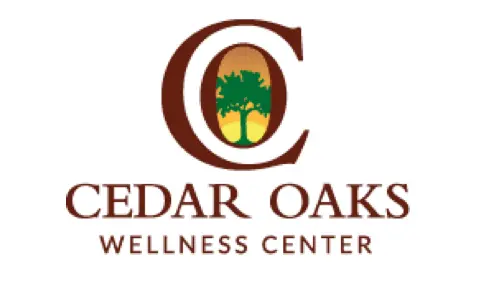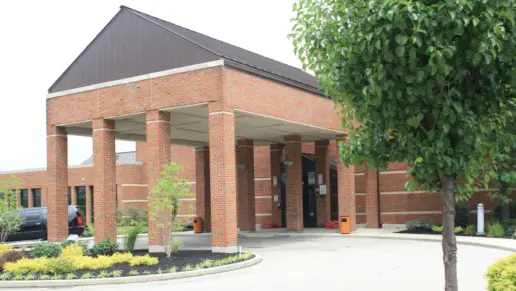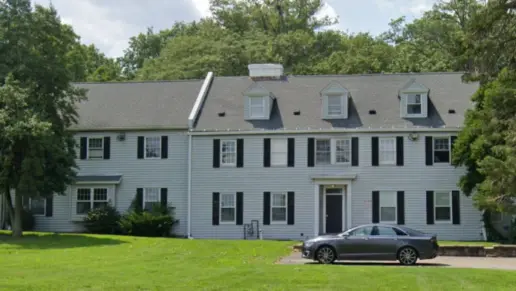About Abraxas Mansfield Counseling Center
Abraxas Mansfield Counseling Center in Mansfield, Ohio, offers residential treatment services for males aged 12 to 21 years. They provide drug and alcohol treatment, behavioral healthcare and emergency placement. The behavioral healthcare program is certified by the Ohio Department of Youth Services. Your drug and alcohol treatment is based on your needs and the needs of your family or caregiver. You receive evidence-based therapy including cognitive behavioral therapy or motivational interviewing in individual, group and family counseling sessions.
During treatment you have clean and sober leisure activities and life skills education and are expected to engage in community service activities. When appropriate, you can continue your education using programs that specifically target reading, math, life skills and career training. Their behavioral health services can treat co-occurring mental health conditions using psychiatric and psychological services. They provide diagnostic assessment and life skills education alongside individual and family therapies.
They offer specialized treatment for youth experiencing sexually abusive behavior. Their programming focuses on pro-social values and is provided by certified and licensed clinicians.
Their group therapy focuses on the 12 Steps of AA. Family involvement is highly encouraged so teens and young adults can be successfully reintegrated after completing the program. Supervised family visits and therapy are encouraged, and biweekly meetings are facilitated to discuss treatment progress.
Youth and young adults may participate in extracurricular activities including small animal interactions, sanctuary leadership and Junior Achievement programs. They offer school clubs such as architectural design and engineering, book club and chess club. Youth are also encouraged to participate in overnight passes to help them integrate what they’ve learned in their home environment.
Your aftercare planning begins on admission to focus on relapse prevention. Aftercare support services are provided for six months after discharge.
Other Forms of Payment
Medicaid is a state based program that helps lower-income individuals and families pay for healthcare. Medicaid covers addiction treatment so those enrolled can use their coverage to pay for rehab. When a program accepts Medicaid the client often pays very little or nothing out of their own pocket.
Addiction Treatments
Levels of Care
Treatments
The goal of treatment for alcoholism is abstinence. Those with poor social support, poor motivation, or psychiatric disorders tend to relapse within a few years of treatment. For these people, success is measured by longer periods of abstinence, reduced use of alcohol, better health, and improved social functioning. Recovery and Maintenance are usually based on 12 step programs and AA meetings.
Drug rehab in Ohio provides comprehensive treatment to address the physical and psychological needs of those struggling with substance use disorders. This may involve inpatient and/or outpatient care.
Many of those suffering from addiction also suffer from mental or emotional illnesses like schizophrenia, bipolar disorder, depression, or anxiety disorders. Rehab and other substance abuse facilities treating those with a dual diagnosis or co-occurring disorder administer psychiatric treatment to address the person's mental health issue in addition to drug and alcohol rehabilitation.
A combined mental health and substance abuse rehab has the staff and resources available to handle individuals with both mental health and substance abuse issues. It can be challenging to determine where a specific symptom stems from (a mental health issue or an issue related to substance abuse), so mental health and substance abuse professionals are helpful in detangling symptoms and keeping treatment on track.
Opioid rehabs specialize in supporting those recovering from opioid addiction. They treat those suffering from addiction to illegal opioids like heroin, as well as prescription drugs like oxycodone. These centers typically combine both physical as well as mental and emotional support to help stop addiction. Physical support often includes medical detox and subsequent medical support (including medication), and mental support includes in-depth therapy to address the underlying causes of addiction.
Programs


Clinical Services
Cognitive Behavioral Therapy (CBT) is a therapy modality that focuses on the relationship between one's thoughts, feelings, and behaviors. It is used to establish and allow for healthy responses to thoughts and feelings (instead of unhealthy responses, like using drugs or alcohol). CBT has been proven effective for recovering addicts of all kinds, and is used to strengthen a patient's own self-awareness and ability to self-regulate. CBT allows individuals to monitor their own emotional state, become more adept at communicating with others, and manage stress without needing to engage in substance abuse.
Research clearly demonstrates that recovery is far more successful and sustainable when loved ones like family members participate in rehab and substance abuse treatment. Genetic factors may be at play when it comes to drug and alcohol addiction, as well as mental health issues. Family dynamics often play a critical role in addiction triggers, and if properly educated, family members can be a strong source of support when it comes to rehabilitation.
Group therapy is any therapeutic work that happens in a group (not one-on-one). There are a number of different group therapy modalities, including support groups, experiential therapy, psycho-education, and more. Group therapy involves treatment as well as processing interaction between group members.
In individual therapy, a patient meets one-on-one with a trained psychologist or counselor. Therapy is a pivotal part of effective substance abuse treatment, as it often covers root causes of addiction, including challenges faced by the patient in their social, family, and work/school life.
Trauma therapy addresses traumatic incidents from a client's past that are likely affecting their present-day experience. Trauma is often one of the primary triggers and potential causes of addiction, and can stem from child sexual abuse, domestic violence, having a parent with a mental illness, losing one or both parents at a young age, teenage or adult sexual assault, or any number of other factors. The purpose of trauma therapy is to allow a patient to process trauma and move through and past it, with the help of trained and compassionate mental health professionals.
Amenities
-
Residential Setting
-
Private Setting
-
Private Transportation
Accreditations

The Joint Commission, formerly known as JCAHO, is a nonprofit organization that accredits rehab organizations and programs. Founded in 1951, the Joint Commision's mission is to improve the quality of patient care and demonstrating the quality of patient care.
Joint Commission Accreditation: Yes
Accreditation Number: 503531
Contact Information
780 Park Ave. W
Mansfield, OH 44906


